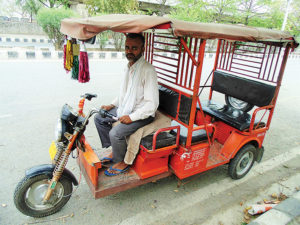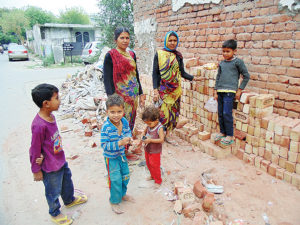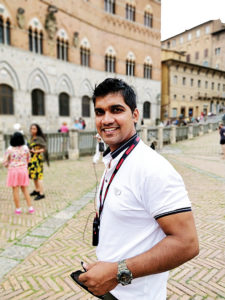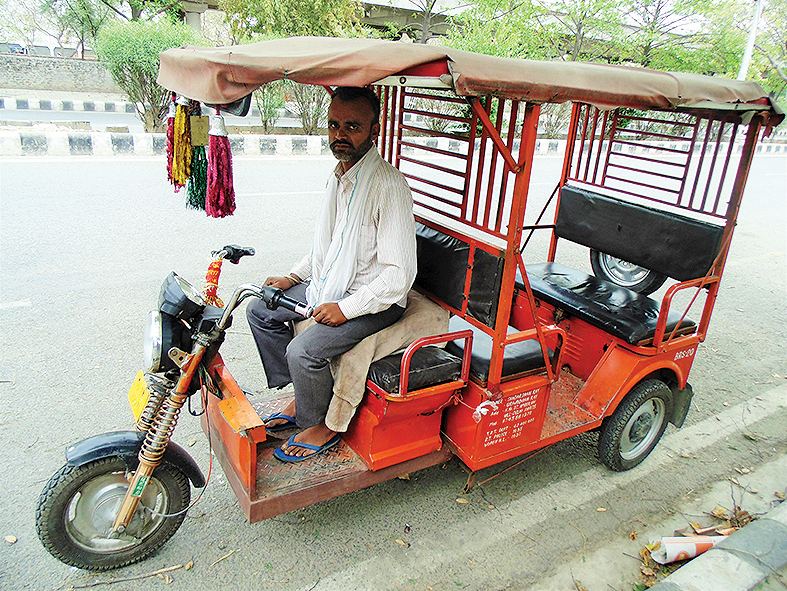Migrants tend to miss their opportunity to cast their vote due to job compulsions. And this is true of labourers as well as white collar executives
India has a colossal inter-state migration, which makes it a melting pot of cultures and people. In such a situation, with the mammoth task of getting at least 83 crore (83,40,82,814 total electors in 2014) people to cast their ballot in this year’s Lok Sabha elections, a thought must be spared for the migrants and their inability to exercise their democratic right.
Take the Capital city, for example. Its population is projected to grow to 37.2 million people by 2028. A news report has it that Delhi’s population grew by nearly 1,000 people each day in 2016, of which 300 moved into the city.
For some of the people we spoke to, it hasn’t been easy to make the change of address, for others it hasn’t been a priority and thus a good excuse to not exercise their adult franchise.
We spoke to people from different walks of life: two construction workers who make Delhi their second home for a few months of the year, one e-rickshaw driver who has lived in the city for 20 years, a young entrepreneur and a corporate employee who haven’t found the time.
Sudharshan Yadav, 33
Champaran, Bihar

Yadav moved to Delhi some 20 years back as a teenager, helping out his elder brother sell fruits and vegetables.
He says the authorities made their life difficult. Either the Municipal Corporation of Delhi swooped down to evict them from their chosen spot or the police would arrest him and take him to the station. The only way to extricate himself from the clutches of these functionaries was by paying bribes.
His life has improved after he decided to buy his own e-rickshaw five years ago.
His three children, two sons and a girl, all go to school but to a private one and that is because they don’t have their Aadhar card to get into a government one.
This will be the first time he will not be casting his vote. “I have to look after my children, I can’t spend so much money and go away to vote”, he says.
For changing his address in the voter ID card, he has knocked on many doors but they ask for proof of address or electricity bills. “I don’t have address proof and my landlord does not want to give electricity bill”.
The Chief Election Commission of Delhi website states that in case the applicant does not have proof of residence in his name, the verifying officer i.e. BLO may take witnesses from the neighbourhood to establish the facts about residence and identity of the applicant.
He does not know this, and it seems the authorities have not informed him of his rights in the matter. But if he were to vote he would for the BJP because “PM Narendra Modi seems like the only plausible leader for the country”.
In Bihar, he claims CM Nitish Kumar — who is in a coalition government with the National Democratic Alliance (NDA) — has done good work in his state.
This, despite the fact that his nephew, who has an MBA degree and is the most educated in the family, has not got a job since he graduated three years ago.
Vipin Mishra, 48
Muzzafarpur, Bihar

Mishra is working at a BSES site to install electric lines underground in Dwarka. He has been here for the past two months and he believes he will be here for another four months.
“We grow turmeric in our fields and corn and vegetables but that is not enough to live off so we come for 4-6 months of work and then go back”.
Most of his co-workers are from the same district and were recruited by a contractor, who has not paid him for the past two months. He should be making Rs 330 per day for his seven-day labour but has been receiving only Rs 500-1,000 per week for food.
“We had to get our money yesterday (April 16) but he didn’t come so we are left with almost nothing to eat,” he says matter-of-factly.
For him, elections do mean a great deal but he cannot afford to go back now and leave his work — essentially, his earnings which feed his family back at home.
“My village was connected to the town only by boat. Whenever there were floods, we could not travel anywhere”, he says. This changed when Nitish Kumar’s government came. He promised them a bridge and it was made.
He also says that at least from his village, all the women will vote for Kumar because of prohibition in the state, “which has helped women a lot”.
Radha
Banda, Uttar Pradesh

Radha and her sister along with their husbands have been working at a construction site for the past two months. While her kids run around, the two women carry bricks on their heads to the site, which is also their temporary home.
“We have no home otherwise in Delhi. If we get some assignment we move and go to that place and live there while building it”, she says.
The problem with this nomadic existence is that neither her children nor her sisters have ever gone to school. She does not know how she will be able to send them as they have no permanent address and she can’t leave them in her
village.
“We have a small farm land but we need money to be able to buy things and we don’t get jobs there so we come to Delhi,” she explains.
She has been doing this for at least 15 years, as far as she can remember Radha says. Her sister, who is nine years younger, is a relatively recent entrant to the labour market.
While she doesn’t have an Aadhar or ration card, the 36-year-old does have a voter ID card. With Banda constituency voting in the fifth phase of elections, she says, “If my husband says let’s go to vote then we will go but we haven’t discussed it.”
She has not yet made up her mind who she would vote for. “Our life is all about working, cooking, cleaning and looking after the children. When do we get time to know about what’s happening in the country?” she asks with a smile.
Avi Taatya
Patna, Bihar

Taatya moved to Bangalore as a teenager to finish his schooling and stayed on. While the other three may have very different backgrounds from Taatya’s, one common factor is their job compulsions, which have not allowed them to leave the city and go back home
to vote.
First working for KPMG and then Ernst & Young, he decided to move to Delhi in 2017 and start his own business with super foods.
But this moving around means the 26-year-old has not voted even once. “I could never vote as I was never in Patna during polls. And it was never feasible to take leave from my job and go to vote”, he says.
He does not know about the procedure of getting his address changed in the voter ID card, but also does not believe that the vote affects “middle class lives”.
However, he plans to get his address changed in time for the Delhi Assembly elections slated for 2020 so that he can place his first ever vote.
Sumit Solanki
Indore, Madhya Pradesh

For almost 15 years now, Solanki has not been able to vote.
Before moving to Delhi in 2005, he voted in one Lok Sabha election, once in the Assembly polls and then in the Municipal Corporation elections.
“I believe, they must change the norms and make the voter ID card viable for any address no matter where you move”. Unable to furnish a permanent proof of residence, the required change of address on the voter ID card could not be made.
“If I get an off I would go (and vote) but I don’t get a chance. If it was in Agra or Meerut I would have anyway but Indore is too far and so, not feasible”.
Solanki hopes to change this scenario soon, so as to be able to vote for a government which takes into account the betterment of education system, develops better infrastructure
and improves the economy.





